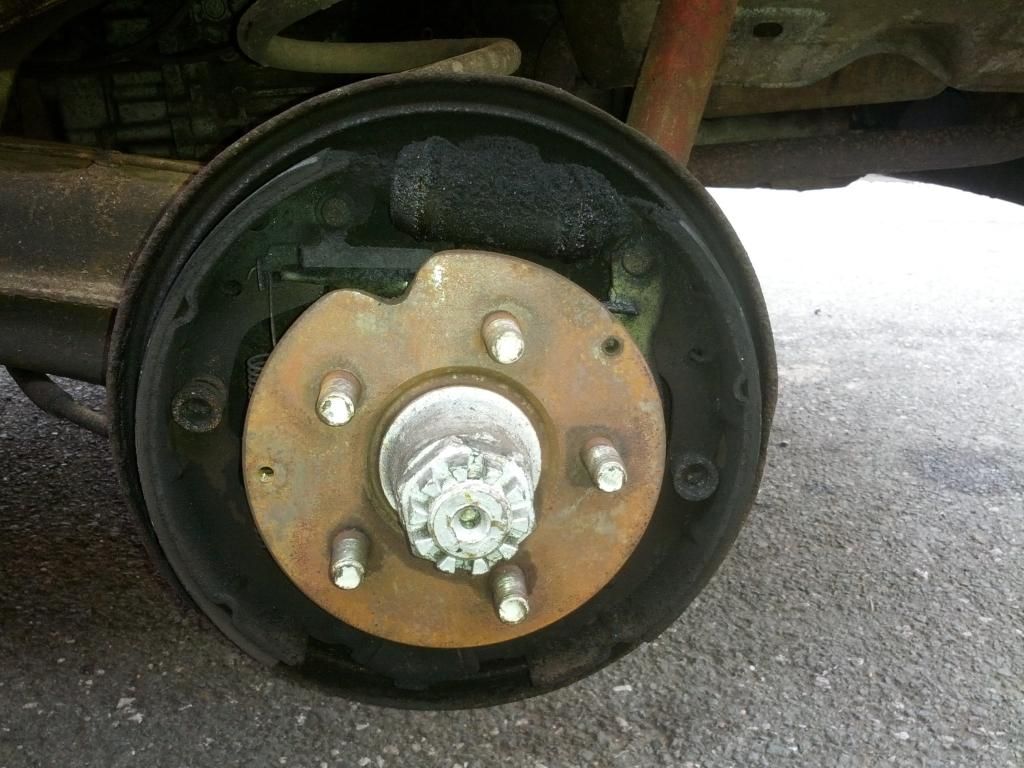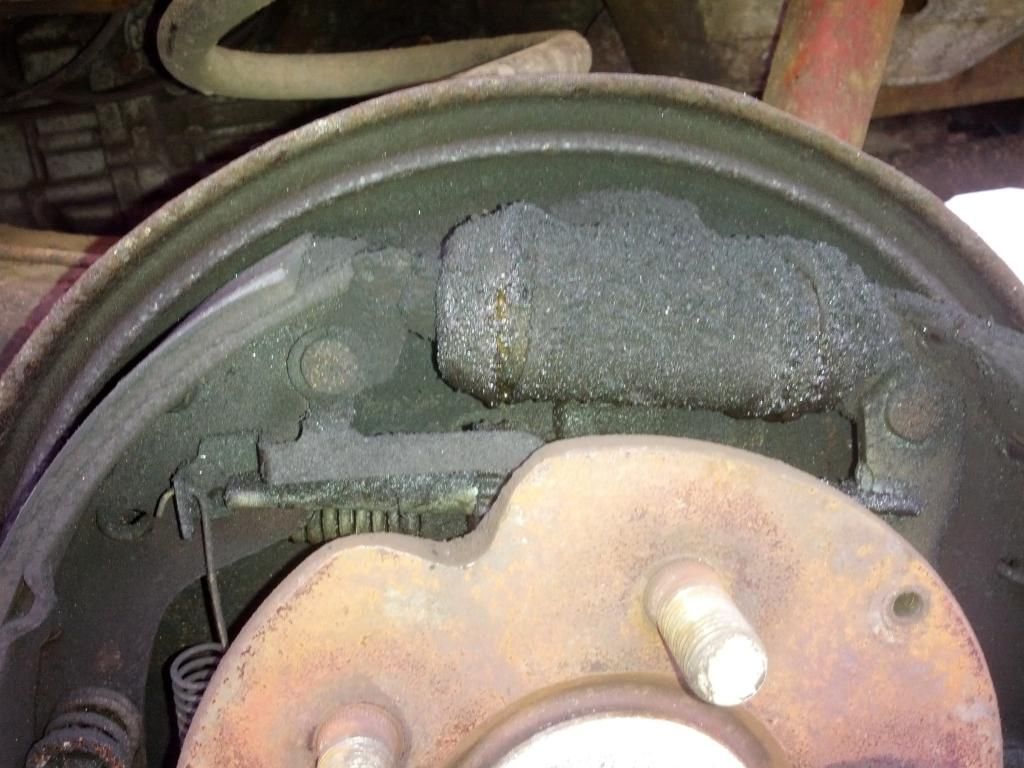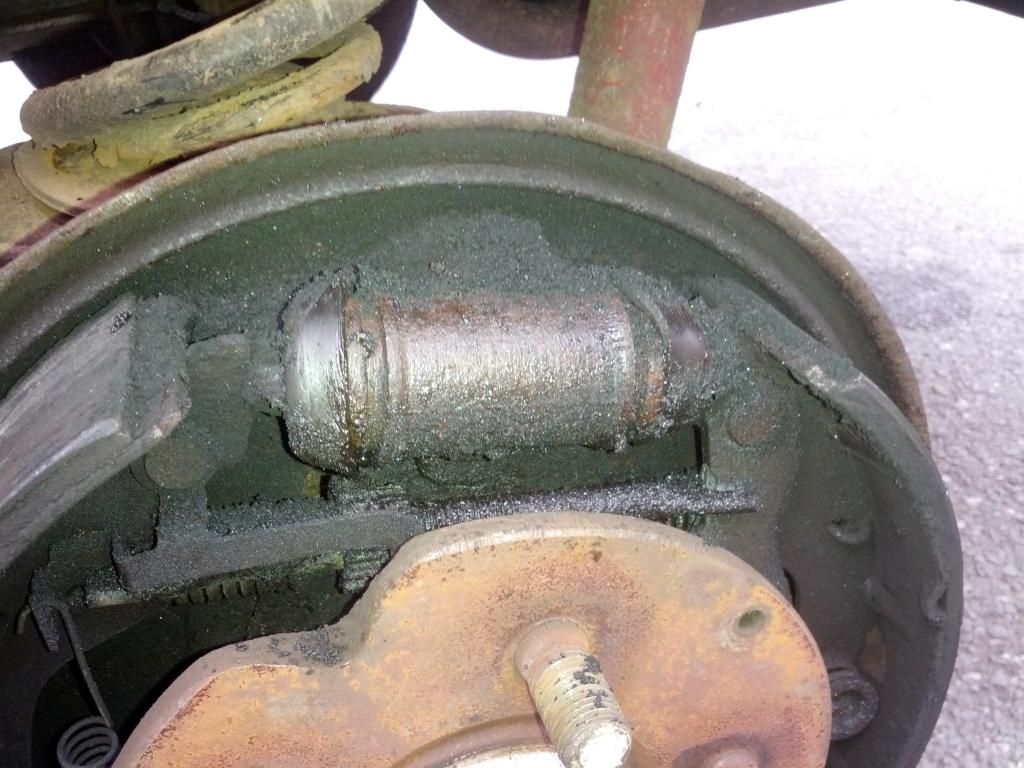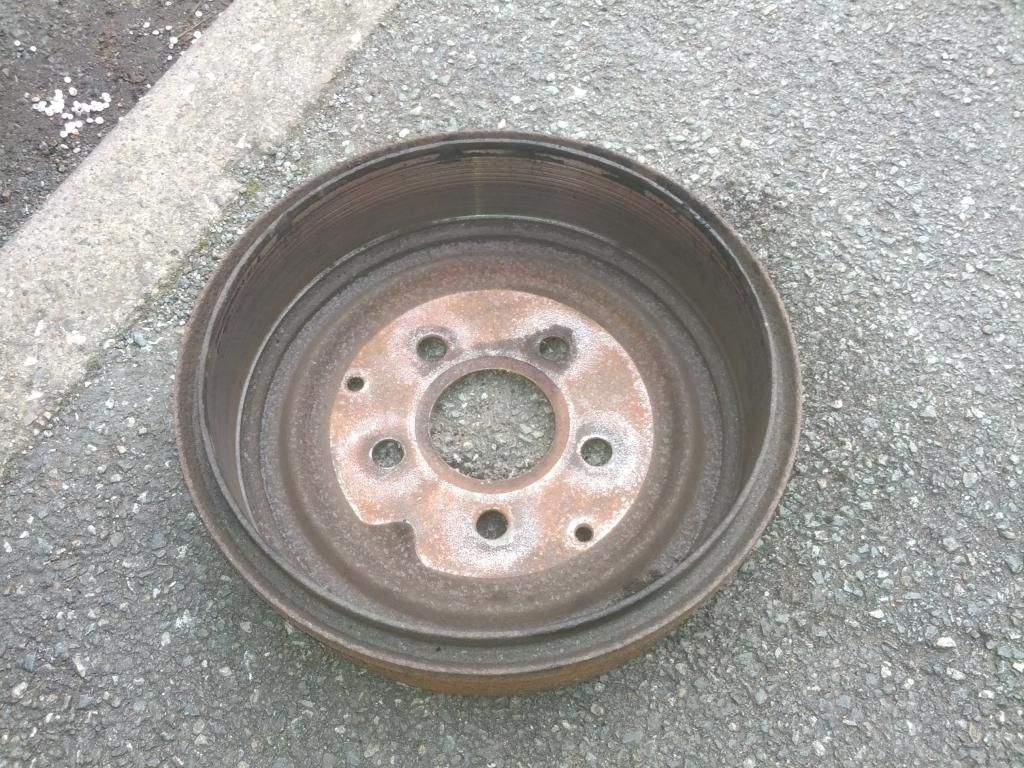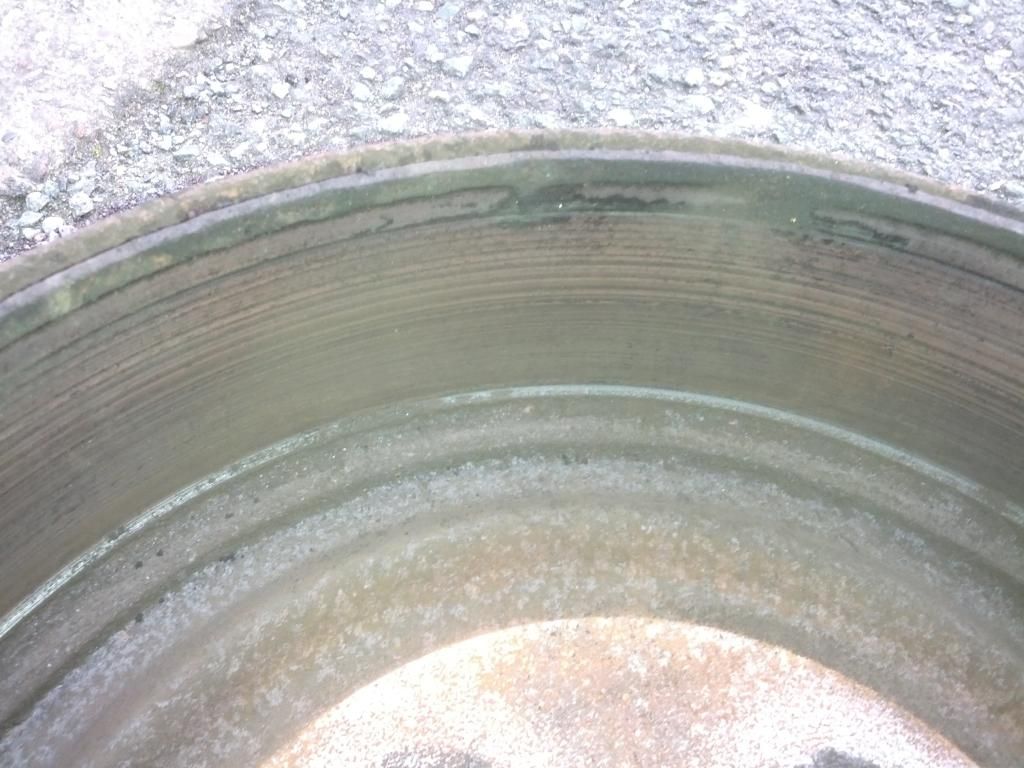BertieWells wrote:Thanks thats great,
Although iv replaced the disks and pads on my dads car im pretty much a noob at brakes so have some brake simpleton questions. Im sure everything will be obvious when i actually come to do it but ....
make sure you wrap some cloth around the reservoir cap to catch any overflowing fluid
I take it this means i wont have to remove the brake hose?
Apply some plastilube or other antiseize paste to the edges and back of the brake pads.
Copper paste good for this? I think that is what i used on dads ...
I notice the rear kit includes the rear wheel cylinders..normally these wouldn't be changed UNLESS they were leaking
Basically iv been meaning to do the brakes on the van since iv had it purely for piece of mind. The previous owner mentioned that they hadnt really been touched in a while. Now that im trying to diagnose another problem (see my knock knock thread) i thought now would be an ideal time to get them all out of the way. I was advised on the other thread that i should have a spare cylinder handy and it worked out cheaper to buy the set like this. So i will now atleast have them spare if i dont need them although i think atleast 1 bleed nipple is missing somewhere on the van (cant quite remember which corner) so atleast one will be used here.
Thanks again for your reply

1) No..you don't have to remove hoses to replace pads or shoes...just push the pistons back on the calipers to make room for the new thicker pads. This means fluid will be pushed back up the brake lines into the reservoir, hence the cautionary note about the reservoir overflowing.
The Reservoir resides under the plastic binnacle (behind the speedo) pull up from the rear closest to the windscreen.
2) Copper grease is often used for brake applications but contrary to popular belief, isn't the best product for this application. Use Coppaslip if you want...it will be absolutely fine, however, if you were having to buy something I would go for a dedicated brake grease such as plastilube which is designed for this purpose.
3) If you are buying the rear wheel cylinders then you might as well replace them.....however, this particular job can often snowball into 'others'...changing the short metal pipe to flex or even the brake flex itself...and will of course require bleeding.
TBH...I would really recommend that you change the brake fluid..this should be done every two years anyway, irrespective.
At this point I would add that you need all 4 bleed nipples free and unblocked so hopefully the broken one you mentioned will be on the rears and replaced with the new cylinders.
Martin

